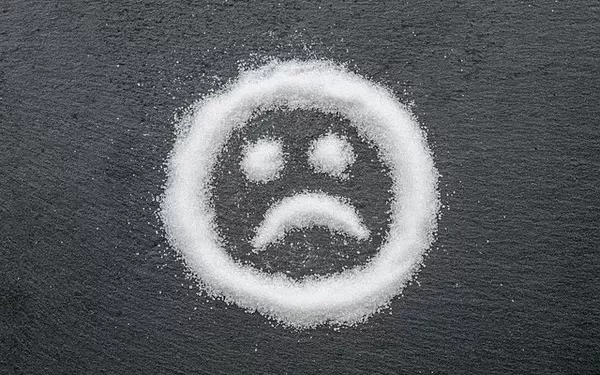Staying hydrated is essential for overall health, but its role in blood sugar management, particularly for people with diabetes, has garnered significant attention. A growing body of evidence suggests that drinking adequate water can help lower blood sugar levels, offering a simple yet effective strategy to support diabetes management.
How Water Affects Blood Sugar Levels
Dehydration can elevate blood sugar levels, and maintaining proper hydration can help restore balance. According to Chris Szoke, NP, CDCES, a diabetes specialist based in Tucson, Arizona, hydration plays a crucial role in blood glucose regulation. “When you’re dehydrated, the glucose in your blood becomes more concentrated,” explains Szoke. “Drinking enough water helps maintain a healthy water-to-glucose ratio in your bloodstream.”
Proper hydration also supports optimal kidney function. When blood glucose levels are high, kidneys work overtime to filter and absorb excess glucose. Drinking more water aids in this process, preventing the kidneys from becoming overwhelmed.
Although the immediate effects of water on blood sugar may seem subtle, proper hydration is a key factor in overall health management. Over time, ensuring sufficient fluid intake can help mitigate blood sugar fluctuations, as monitored by glucose meters or continuous glucose monitors (CGMs).
The Link Between Dehydration and High Blood Sugar
Conversely, insufficient water intake can have a negative impact on blood sugar levels. Dehydration triggers a drop in blood pressure, which can activate the release of stress hormones that contribute to elevated blood glucose. A small study found that water restriction over three days significantly raised blood glucose levels in individuals with type 2 diabetes, though this effect was not observed in those without diabetes.
Moreover, high blood sugar can exacerbate dehydration. One of the first signs of uncontrolled diabetes is excessive thirst and urination, as the kidneys attempt to flush out excess glucose, leading to further dehydration. Severe dehydration can be life-threatening, particularly in cases of diabetic ketoacidosis (DKA), a dangerous complication resulting from insulin deficiency. Dehydration is a common precipitant of DKA, often triggered by illnesses that cause vomiting or diarrhea.
Individuals with diabetes should seek medical attention if they experience prolonged vomiting, diarrhea, or difficulty staying hydrated. The CDC advises emergency care if vomiting lasts for more than six hours or if a person cannot retain fluids for over four hours.
Long-Term Health Benefits of Hydration
Chronic dehydration may increase the risk of developing conditions like type 2 diabetes and metabolic syndrome. Some studies suggest that habitual dehydration may contribute to the onset of diabetes, making regular water intake a potential preventative measure. Though research is still ongoing, drinking water regularly could be a simple lifestyle change to support metabolic health and reduce the risk of developing diabetes.
Additionally, staying hydrated can help prevent other health issues, including kidney stones, urinary tract infections, high blood pressure, constipation, and headaches.
Water, Weight Loss, and Blood Sugar Control
Drinking water can indirectly help with weight management, a critical aspect of diabetes care. Weight loss has been shown to improve insulin sensitivity in people with type 2 diabetes and reduce blood sugar levels. While water alone is not a magic solution for weight loss, it can help control hunger and boost metabolism, especially when it replaces sugary drinks like soda or juice. These beverages can cause rapid spikes in blood sugar and contribute to weight gain, which is a significant risk factor for type 2 diabetes.
Diabetes Medications and Dehydration
Certain diabetes medications can increase the risk of dehydration. SGLT-2 inhibitors, commonly prescribed to people with type 2 diabetes, work by preventing the reabsorption of glucose in the kidneys, leading to increased urination and potential dehydration. Similarly, metformin, a widely used medication for type 2 diabetes, can cause gastrointestinal side effects like vomiting and diarrhea, which can quickly lead to dehydration.
Other medications, such as GLP-1 receptor agonists like semaglutide and tirzepatide, can also reduce thirst perception, leading to underhydration. It’s important for individuals using these medications to monitor their fluid intake carefully to avoid dehydration.
The Impact of Diet on Hydration
Many diabetes-friendly diets, particularly low-carb and ketogenic diets, may inadvertently increase the risk of dehydration. These diets often limit water-rich foods like fruits and vegetables, and the body may excrete more water as it adapts to a lower carbohydrate intake. To mitigate dehydration, those following such diets should drink plenty of water and may consider supplementing with electrolytes like sodium, potassium, and magnesium.
Another trend, dry fasting, where individuals avoid drinking water between meals, can also contribute to dehydration. People with diabetes should be cautious about adopting such practices.
How Much Water Should You Drink?
The National Academies of Sciences, Engineering, and Medicine recommends women consume approximately 91 ounces (about 11 cups) of water per day, and men about 125 ounces (around 16 cups). These amounts include water from both beverages and food. However, individual hydration needs can vary based on factors like age, weight, physical activity, and climate.
“Extra water during exercise is especially important to replace fluid lost through sweat,” adds Szoke. It’s also essential to avoid overhydration, which can lead to a rare but serious condition called hyponatremia, or water intoxication. Drinking water should be balanced with the body’s natural thirst signals.
Conclusion
Drinking water is a simple yet effective way to help lower blood sugar levels, improve kidney function, and support overall metabolic health. Adequate hydration is crucial for individuals with diabetes, both in the short term and long term. It can help manage blood sugar, prevent dehydration-related complications, and support healthy weight management. Replacing sugary beverages with water can offer significant health benefits, including better blood glucose control and a reduced risk of diabetes-related complications.
Related topics:
Yimeng Drink Is Not a Cure-all, Beware!


























